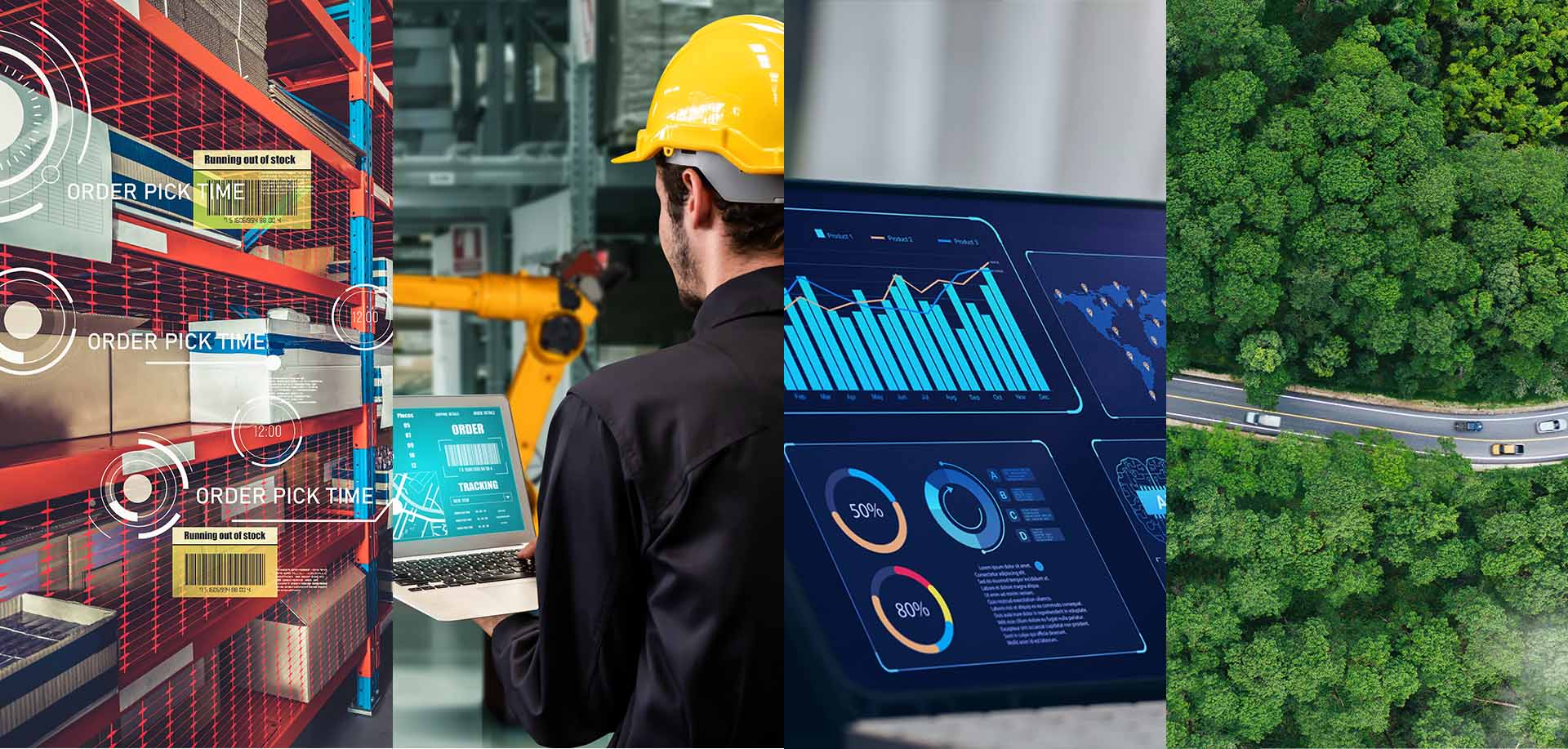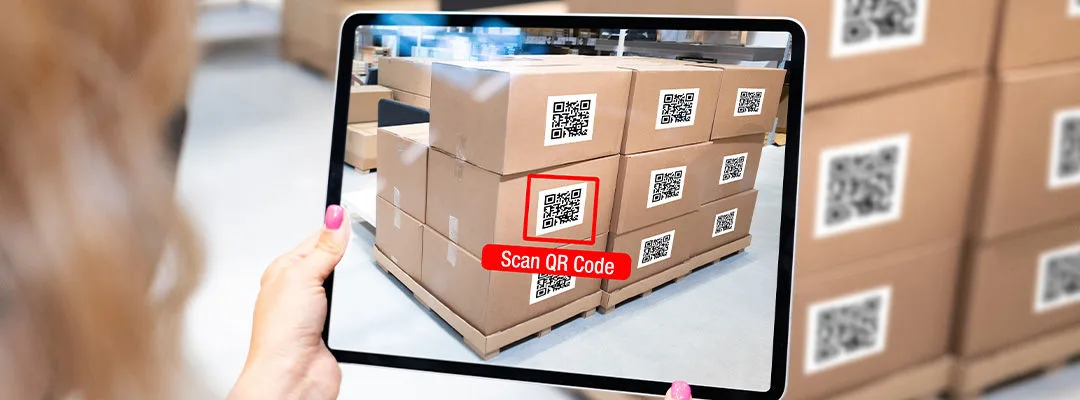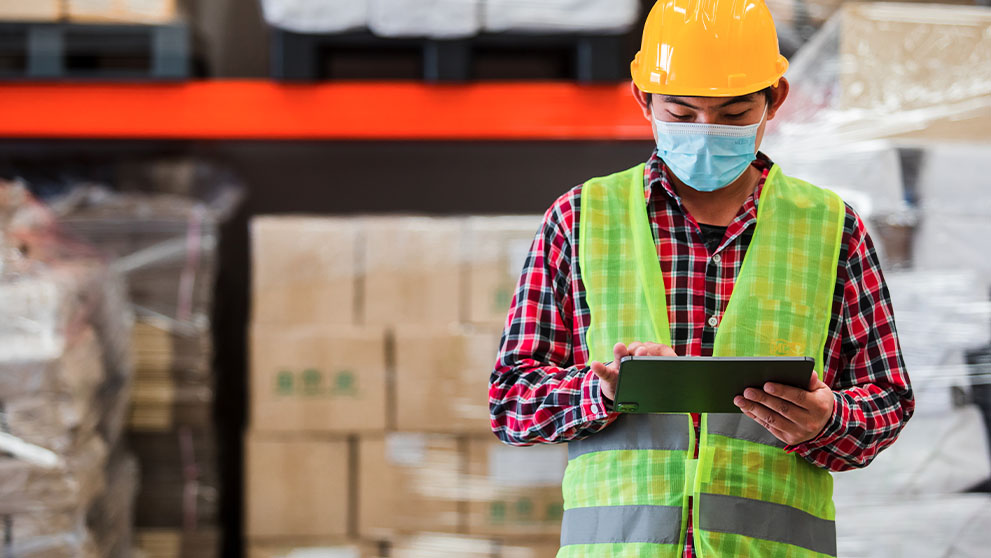What does the future of logistics look like? Knowing which trends are set to shape the industry in 2025 will help your business optimize its processes, stay competitive, and operate sustainably. Here, we dive into the logistics innovations and technologies to lean into this year.
AI in logistics
Artificial intelligence played a central role in our 2024 logistics trends predictions, and 2025 is set to be the same. In fact, the relevance of AI in logistics has expanded significantly, as reflected in the latest edition of the DHL Logistics Trend Radar, which highlights five prominent trends helping businesses to optimize their supply chain: Computer Vision, Audio AI, Generative AI, AI Ethics, and Advanced Analytics. Let’s take a closer look at each one and explore how they may help SMEs in their day-to-day operations.
Computer Vision
Advanced cameras can now process visual data from photos or videos with the same ability as a human eye, by applying AI algorithms to analyze the data extracted from the digital imagery.
Tracking assets through the warehouse is an important part of e-commerce logistics, and computer vision is now helping to support inventory monitoring. High-res computer vision cameras can identify packages, read their barcodes or QR codes, recognize additional information, and then update inventory records in real time – even placing replenishment orders with suppliers where necessary.
The technology is accessible even for SMEs; it can be integrated into affordable hand-held scanners to speed up the sorting and packing stage of fulfilment.
The high accuracy of computer vision minimizes risks such as package loss, theft or misrouting. With more accurate order fulfilment, e-commerce businesses can reduce their number of product returns.
Computer vision is also playing a role in enhancing the sustainability of SMEs’ fulfilment. It can view an item and automatically calculate the right-sized packaging to use. This reduces the amount of air being shipped – saving businesses shipping costs and reducing unnecessary “empty” transport emissions.
Audio AI
Just as computer vision is the eyes of your logistics operations, audio AI is the ears. This logistics technology can interpret sound anomalies in the warehouse – including those that are too subtle for the human ear – and predict defects in machinery. It means, for example, a faulty conveyor belt can be spotted and fixed quickly, before any delays in production are caused.
And it’s not just machinery that the technology can monitor. Audio AI can be used for predictive fatigue management – detecting from a worker’s voice, whether they are tired. It may suggest to a long-haul delivery driver that they should take a break – improving the employee’s productivity and reducing overall supply chain risk.
Audio AI is thus ensuring machinery and humans are always working safely to their best capacity, by anticipating and negating any errors that could slow down production.
Generative AI
GenAI is the production of new content – including images, text, audio and videos – based on patterns learned from existing data. Thanks to its wide range of applications, it’s perhaps unsurprising that in the latest McKinsey Global Survey on AI (2024)1, 65% of respondents reported that their organizations are regularly using GenAI.
For SMEs, its benefits are far-reaching:
Automating content creation: drafting blog posts, ad copy, social media posts and marketing materials. And, with personalization key to creating engaging campaigns, generative AI can analyze and interpret customer behaviors and preferences to make the most impactful content for the specific audience.
Streamlining customer service: automated chatbots can respond to customers’ queries, 24/7, in multiple languages. Tapping into customer data, they can even make product recommendations based on a user’s previous purchase behavior – a more personalized service that promises greater conversions.
Accelerating product development: generative AI acts as an innovative tool, reading industry trends, customer feedback, and competitors’ strategies to steer your product development towards meeting gaps in the market.
At DHL Express, generative AI is being leveraged to give customers shipping internationally a smoother experience. The logistics leader’s flagship international shipping portal, MyGTS, uses AI and machine learning to help customers find the correct HS Codes for their shipments, making customs clearance faster and more accurate.
"With GenAI, logistics can transcend traditional limitations, offering real-time insights and automation that drive smarter, faster, and more sustainable operations."
Emily Pitcher, Senior Manager of Innovation, DHL CSI
AI Ethics
Whilst so much of AI is championed, it raises many ethical dilemmas. How will it impact jobs? Will it – and can it – replace human creativity? Is it a threat to personal data privacy? And then of course there’s the danger of deepfakes…
The trend of AI ethics refers to the increasing focus on addressing the ethical considerations and implications of artificial intelligence technologies – notably concerns around the privacy and security of sensitive data.
Thus, in 2025, “responsible” AI will be promoted, with businesses encouraged to deploy AI in logistics in a way that’s ethical, transparent and respectful of intellectual property rights. Those which fail to adhere to proper standards risk having their reputations tarnished amongst customers.
Advanced Analytics
The trend of Advanced Analytics refers to the “next generation” of data processing. This encompasses a range of methodologies including statistical analysis, predictive modeling, artificial intelligence, machine learning, and data mining – enabling organizations to leverage data for strategic decision-making and competitive advantage.
About 73% of data goes unused for analytics in small and medium companies2.
Within logistics, where so many decisions rely on data, the role of advanced analytics cannot be understated. Consider these examples:
Demand forecasting. Maintaining stock levels can be a challenge for SMEs. Yet AI-powered inventory management software can analyze historical customer data and market trends to help businesses anticipate their inventory needs with greater accuracy. This helps to optimize storage space and reduce wasted stock.
Route optimization. For SMEs making multiple deliveries, route optimization software can help to plan the most efficient sequence, considering factors such as distance, real-time traffic, and vehicle capacity. This means they’ll save time, reduce fuel emissions, and get goods to customers quicker.
Greater visibility in the supply chain. Analytics can help businesses track assets as they move throughout the supply chain, identifying areas of inefficiencies. This can help make improvements and implement automated processes to streamline production – which in turn reduces waste and unnecessary costs.
As these examples show, SMEs utilizing the power of advanced analytics will benefit from significantly enhanced operational efficiency and customer satisfaction.
Sustainable logistics
In 2024 we tipped electric vehicles and alternative fuels as key sustainable logistics trends to watch. In 2025 their importance will remain but expect them to be joined on the trend podium by renewable energy infrastructure and circularity.
Renewable energy infrastructure
This refers to the development of sufficient and reliable networks to produce, transfer, and store renewable energy. Applications range from electric vehicle and hydrogen charging stations to entire networks such as energy carrier grids.
Logistics companies are increasingly having to adapt to electricity demand brought about by vehicle electrification. Furthermore, the pursuit of carbon-neutral buildings adds to these challenges, with warehouses, distribution centers, and other supply chain facilities requiring energy-efficient technologies, practices, and the integration of onsite renewable power generation and storage.
For SMEs, a perhaps obvious solution is to integrate solar panels – which have the added benefits of cost savings and energy security. Supply chain diversification can support sustainable logistics, too – positioning warehouses and distribution centers in smart ways. For an SME, this may mean choosing a warehouse location closer to customers to reduce final-mile emissions.
In a DHL survey, at least two thirds of SMEs across a range of industries said that sustainability is either “very important” or “extremely important” to them.
Circularity
E-commerce sometimes receives a bad rap for its fast-moving and disposable nature. Yet, driven largely by changing consumer attitudes, a more sustainable model is emerging. Circularity aims to eliminate waste by considering the full product lifecycle in advance, designing and utilizing each item and its constituent parts to be returned in the supply chain.
In 2020, the European Commission3 adopted the new circular economy action plan (CEAP) – legislation which encourages businesses to “improve product durability, reusability, upgradability and reparability.”
Reverse logistics supports this – a model which promotes the recycling, repurposing, repairing and resale of products. E-commerce businesses dealing with high volumes of product returns can lean into this to extend products’ lifecycles and divert them from landfill.
Circularity also includes the products’ packaging. A new generation of recyclable, biodegradable and planet-friendly options have already been developed, including those made from bamboo, seaweed and mushrooms. Expect to see even more surprising innovations in 2025.
2025 is the year of sustainability. Open a DHL Express Business Account to benefit from a range of dedicated sustainable shipping solutions, including GoGreen Plus.























